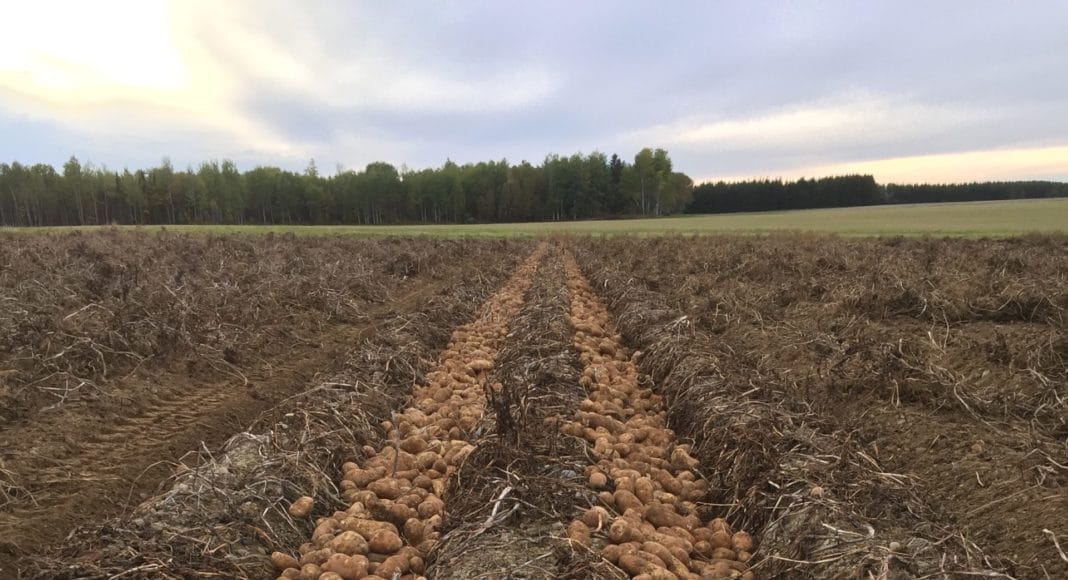Each year, scab steals a costly percentage of the potatoes produced at Patates Dolbec, one of Quebec’s largest farms. Philippe Parent, Patates Dolbec’s director of quality assurance and agronomy, coordinated an on-farm soil fumigation trial last year to see how chloropicrin (sold as Strike for potatoes) might impact his soil’s health and productivity. I’m a huge fan of real-life, on-farm trials, so I was excited to hear the findings he presented at our Potato School online grower education event in December. Here’s a snapshot of what he said:
Growing marketable potatoes today is a challenging balance. Customers expect near-perfection — reds need to look like rubies, whites like eggs. Those same customers expect their potatoes to be grown in a way that’s respectful of the environment, of agricultural workers, and of neighbours too. Meanwhile, of course, growers also need to make money to keep farming.
Scab has a major impact on crop marketability and profitability on our farm, sometimes costing upwards of 20-50 per cent of our production. Losses like those also bite deeply into sustainability — wasting potatoes is poor ecological stewardship.
Yet, in our region, many growers are hesitant to use a soil fumigant. I understand, I started with the same worries: would fumigating damage the soil? Would it unbalance the microbiome or even help pathogens prosper? Being a scientist, I decided to collect data so I could make informed decisions about management options.
Last year, we worked with a researcher for small plot trials, thanks to funding from Quebec’s Ministry of Agriculture, my company, and the TriCal Group. The researcher tested the impacts of chloropicrin applied before planting a susceptible variety, measuring fungal and bacterial populations from before fumigation through harvest.
I was pleased with chloropicrin’s strong management of scab (and, as an added bonus, rhizoctonia). As importantly, the results convinced me that chloropicrin doesn’t sterilize the soil, unbalance the microbiome, or support pathogens.
During earlier parts of the season, chloropicrin influenced some bacterial and fungi populations more than others, compared to the non-treated. However, at the end of the season, the microbiome had come back almost to the same population rates as prior to application. Given that only a small fraction of the soil is actually treated, I’m very comfortable with this product’s impacts to soil health, especially if you plow at the end of the season to mix treated and untreated soil together, and add other good management practices like rotation.
I don’t use pesticides for fun. They have to be both useful and safe. When other growers call me asking for advice, I send them details of our project and our results, and that’s almost always enough to convince them to try chloropicrin themselves.
Like any tool, chloropicrin should only be used when and where needed. We pick and choose based on the variety, the timing of harvest, and the soil type. But overall, I do really appreciate having a safe and effective control option.
Thanks, Philippe, for sharing your findings with us, and we wish you great growing success in 2022!
For more information about Strike or to view Philippe Parent’s presentation, visit our website.
Related Articles
Potato School Snapshot — Can Fumigation and Sustainability Align?
Tackling Early Die Complex — a Sneak Peek from Potato School








